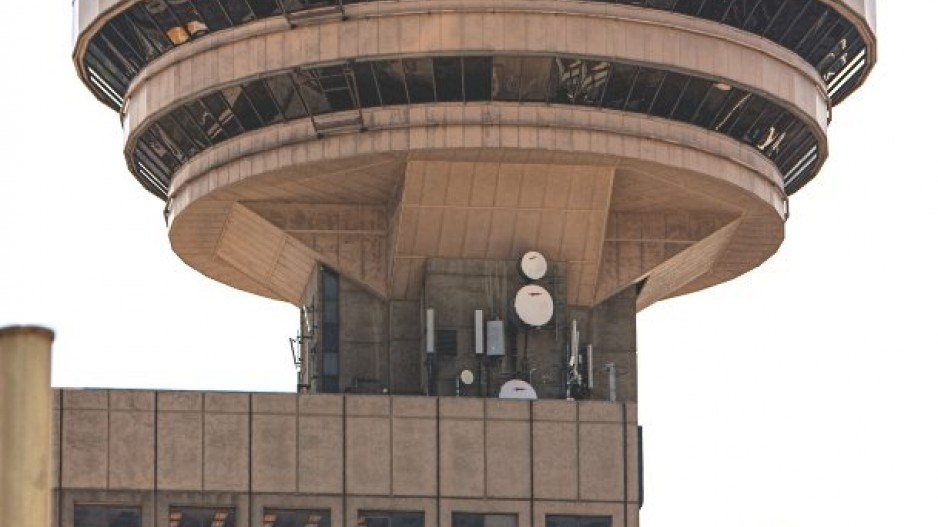To understand the potential behind deploying the next generation of mobile wireless technology (5G), one needs only to look at what the advent of LTE brought the world, says Jason Elliott.
“Because of that connectivity and the evolution of what became the smartphone, we had a completely new business model appear in the market that no one saw coming,” the 5G market development manager for Nokia Corp. (HEL:NOKIA) told Business in Vancouver, referring to the unforeseen rise of ride-hailing services.
“As we start to really connect the physical world around us [with] this heavy, industrial automation, we believe there will be new business models that appear that generate huge amounts of economic growth.”
Alas, just as the entry of ride-hailing into B.C. has been stalled over the years, Canada is facing bumps in the road when it comes to 5G deployment.
Even before last December’s arrest of Huawei Technologies Co. Ltd. chief financial officer Meng Wanzhou in Vancouver, the Chinese technology giant had fallen under intense global scrutiny over concerns its 5G equipment could facilitate spying for Beijing.
Canadian intelligence allies such as Australia, New Zealand and the U.S. have already banned Huawei’s 5G equipment because of espionage concerns.
The U.K., meanwhile, is reviewing security risks posed by Huawei.
Bell Canada and Vancouver-based Telus Corp. (TSX:T) have been partnering with Huawei to develop a 5G network while Ottawa conducts its own security review.
In a February filing, Telus cautioned investors over potential delays and financial fallout if the federal government were to nix Huawei’s 5G technology.
“A decision prohibiting the deployment of Huawei technology without compensation or other accommodations being made by the Government of Canada could have a material, non-recurring, incremental increase in the cost of Telus’ 5G network deployment and, potentially, the timing of such deployment,” the company stated.
If Huawei 5G equipment and software were to be banned in Canada over security concerns, two of the country’s telecom giants would likely seek compensation for the money and resources poured into this deployment before the Chinese company was made off limits.
“The important thing is that the [policy-makers] and regulators do everything they can to ensure that those service providers have the ability and the tools and the assets they need to be able to deploy their network in the time frame they deem necessary,” Elliott said.
If that does not happen, he said, the country faces “LTE exhaust” – the point at which the current networks can no longer handle capacity due to the addition of millions of devices streaming videos, browsing the web or engaging in other activities adding to the demand for data on an aging network.
“The rest of the world right now is moving very fast on 5G. We see deployments happening obviously in the United States, in Europe and in Asia – certainly in [South] Korea,” Elliott said. “And these first markets are gaining some advantage.”
Meanwhile, Brendan Gill, CEO of U.K.-based mobile analytics firm Opensignal Ltd., said uncertainty over the Huawei question is “the biggest risk of all.”
“We’re right in a phase of evolution into the next generation of the technology to 5G, where huge decisions are being made around the level of investment,” said Gill, whose company is known for measuring the performance of wireless telecom providers worldwide.
“Any uncertainty means those decisions are delayed, are watered down – and that could be very harmful.”
Canadians should also be prepared for an uneven rollout of 5G, according to Laura Tribe, executive director of Vancouver-based consumer advocacy group OpenMedia.
“Downtown Vancouver very likely [will] be rolling out 5G sooner than even Squamish or [Vancouver] Island,” she said.
And that gap in mobile wireless access is significant because it further accentuates the current urban-rural divide for broadband internet, Tribe said.
Bell Canada raised eyebrows last month when it announced it was reducing its investment in deploying rural broadband by 20% – the equivalent of 200,000 households.
This came about a week after the Canadian Radio-television and Telecommunications Commission (CRTC) finalized the wholesale rates larger providers can charge smaller providers for access to their high-speed broadband networks.
Rates were reduced by up to 77% in some cases.
“In terms of competition in Canada, that’s really great,” Tribe said, adding that Bell’s response amounted to “a bit of a tantrum.”
“Rural and remote Canada remains drastically under-connected compared to the urban areas.”
In 2016 the CRTC declared that broadband internet was a fundamental basic service everyone deserves access to.
But Tribe said her organization has been observing situations where individuals and businesses are still being forced to leave remote communities because of the lack of access to high-speed internet.
“They can’t keep up,” Tribe said.
“You’re now living in a world where every device around you is being built for that high-speed connection, and you’re increasingly left behind.”




